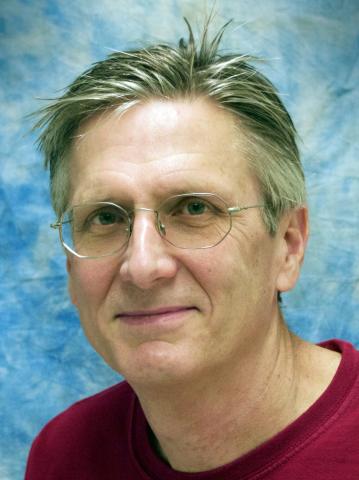Samuel J. Landry, PhD
Professor of Biochemistry, Department of Biochemistry and Molecular Biology

Research
Protein folding and protein-protein interactions; molecular chaperone proteins; antigen processing.
Our work employs biochemical and biophysical techniques to investigate structure/function relationships in protein-protein interactions, especially those involved in cellular stress and immune responses.
Mechanism of Hsp60/Hsp10 Chaperonin Specificity: Chaperonins are a class of stress-induced molecular chaperones characterized by a ring-shaped oligomeric structure and the distinctive ability to use ATP to promote protein folding. Our studies aim to illuminate mechanistic features of chaperonin function and identify determinants of Hsp60 specificity for substrates and Hsp10s.
E. coli DnaJ/DnaK: Members of the Hsp40 and Hsp70 families of chaperones are implicated in a host of cellular processes in all organisms including DNA replication, gene expression, and protein translocation across membranes, in addition to the stress response. The goal of this research is to understand at a physical chemical level how Escherichia coli molecular chaperones DnaJ (an Hsp40) and DnaK (an Hsp70) cooperate in the management of protein-protein interactions.
Structural Instability and T-cell Epitope Immunodominance. Humoral and cellular immunity to HIV and other pathogens depend on antigen-specific CD4+ T cell responses directed against peptides presented in MHC class II antigen presenting proteins. Generally, CD4+ T-cell responses are focused on only a few immunodominant regions of naturally processed antigens. We have found that immunodominant regions occur in the sequences flanking locally unstable segments of an antigen's three-dimensional structure. We are now modifying CD4+ helper T-cell immune responses to recombinant antigens by engineering their processing and presentation, and studying how the specificity of the CD4+ T-cell response influences the effector phases of the immune response.
In our work on T-cell epitope immunodominance, we investigate how the immune system zooms in on key features of foreign and self proteins, as it fights off invaders but avoids causing autoimmune disease. The immune system recognizes bacteria, viruses, and toxins through surveillance by antibodies and T-cell receptors. Antibodies act alone to recognize intact foreign antigen molecules; whereas, T-cell receptors recognize pieces (epitopes) of antigen molecules that have been broken down and presented on the surface of specialized antigen-presenting cells. This dual-aspect recognition nearly ensures that the immune system will not attack our own molecules. Our work has shown that the process of antigen breakdown tends to focus the immune system on certain pieces of proteins. We suspect that bacteria and viruses have evolved to misdirect the immune system toward highly variable or otherwise less effective protein segments. We are attempting to overcome this misdirection by engineering subunit vaccines so that the immune system focuses on the most important antigen segments. Understanding how the immune systems distinguishes self from non-self will allow us to develop strategies to treat and prevent asthma and other forms of allergy.
Contributions
Awards & Accomplishments
- National Institutes of Health (R01AI080367), "HIV ENV epitope engineering," 6/19/09-6/18/12, $750,000 direct costs.
